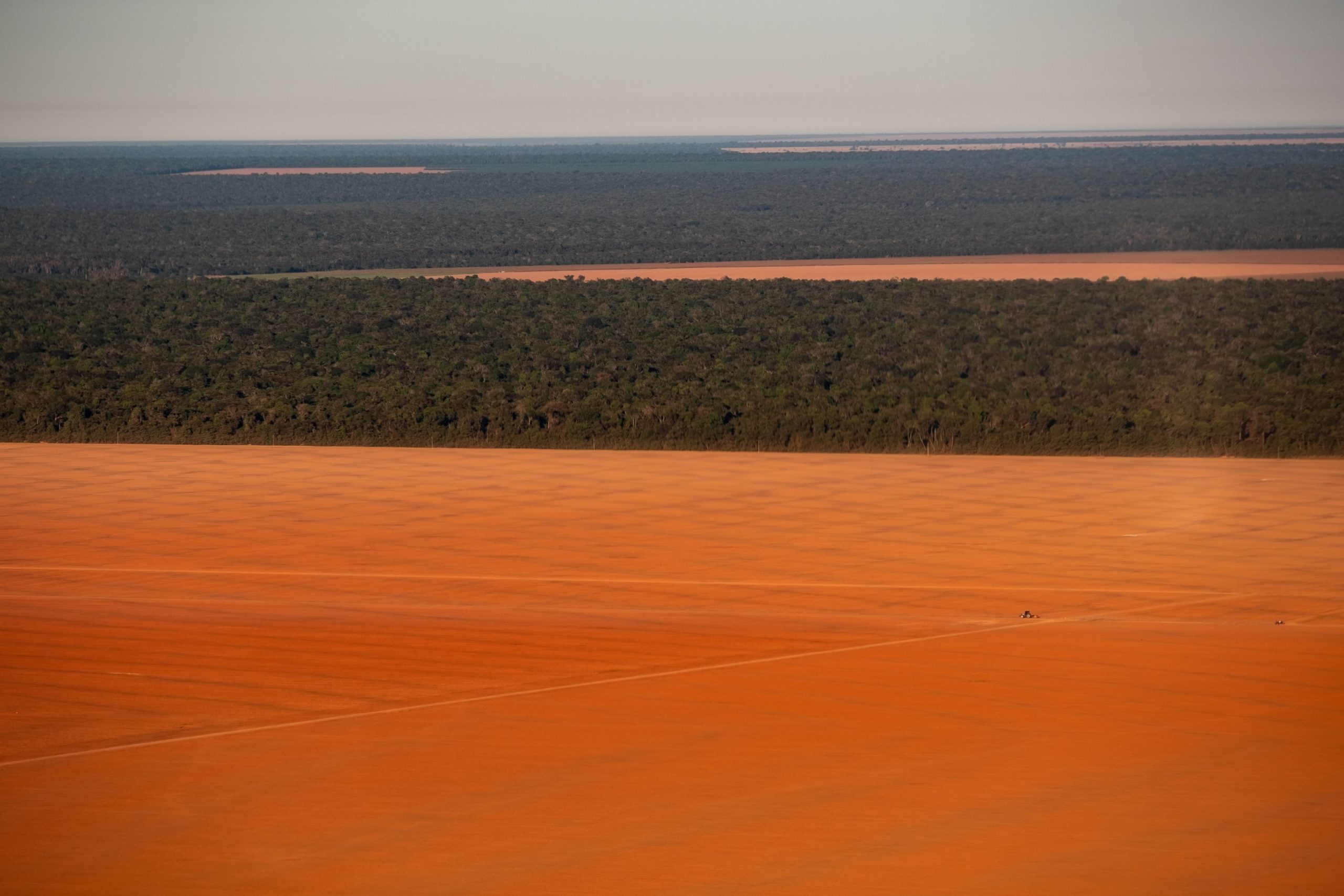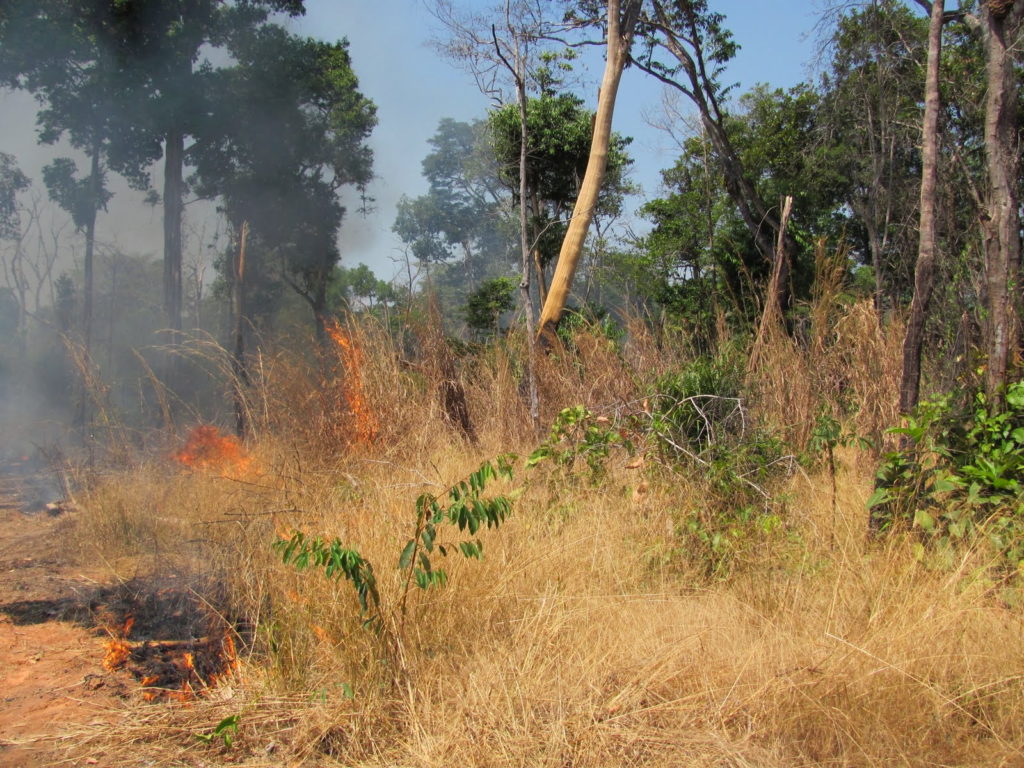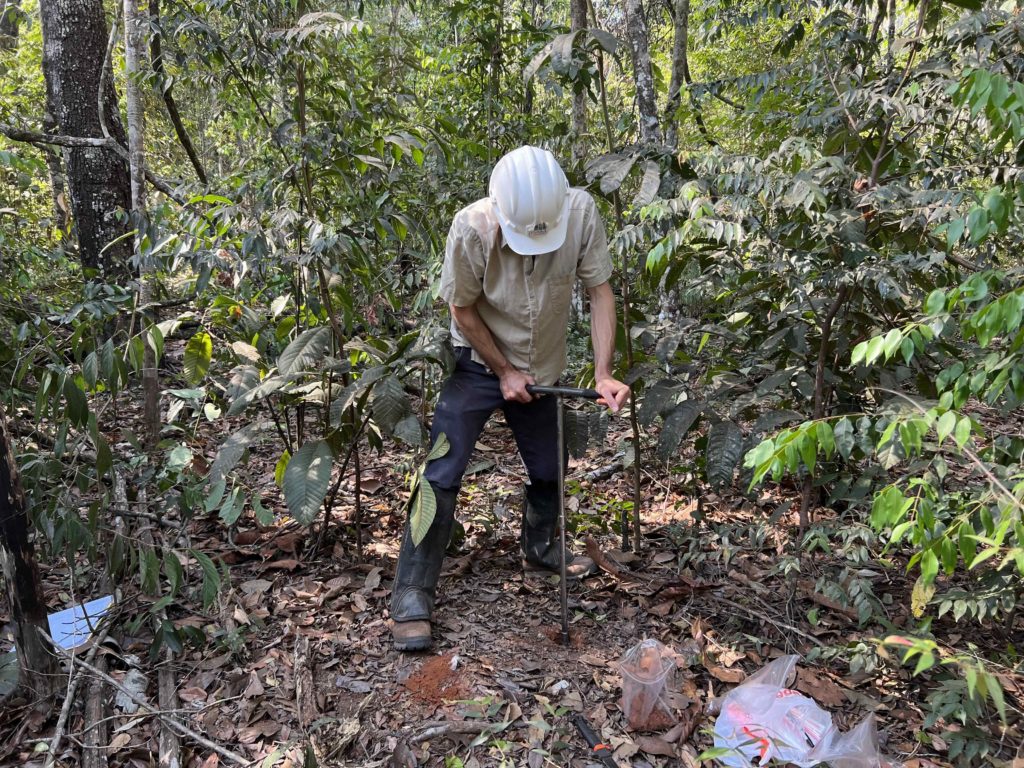
Posted by Ted Feldpausch
25 March 2025A new study shows the significant impact of recurring fires and agricultural conversion on soil carbon storage in the Amazon rainforest. The research, a collaboration between the University of Exeter (UoE) and Center for Nuclear Energy in Agriculture (CENA) at the University of São Paulo (USP), demonstrates substantial carbon loss and degradation of soil properties in forests in the Amazon-Cerrado transition region.
The study analysed a large-scale 150-hectare burning experiment in Mato Grosso, Brazil, examining the effects of annual and triennial forest fires, as well as forest conversion to agriculture. The research was led by CENA/USP student Mário Lucas Medeiros Naval, who was supervised by Prof. Plínio Barbosa de Camargo (CENA/USP) and Prof. Ted R. Feldpausch (UoE), with collaboration from Dr. Wanderlei Bieluczyk and eight other co-authors from CENA/USP, UNEMAT, Yale University, IPAM, and UoE. The main findings include:
Image: Dead trees and an open forest canopy following wildfire in the burning experiment in southern Amazonia (photo credit: Mário Lucas Medeiros Naval)
“The Amazon rainforest is being subjected to frequent fires, converted to agriculture, and impacted by climate change. A large part of current research focuses on the above-ground effects of fire on vegetation. While the effects of agricultural conversion on soil are better understood, the impact of frequent forest fires on soil remains a major knowledge gap in Amazonia,” said Mário Lucas Medeiros Naval. “Our study contributes to the understanding of these impacts with environmental and climate change, which can further intensify forest fires.”

Image: Fire entering a forest from the forest edge adjacent to agricultural fields (photo credit: Paulo Brando)
To evaluate the effect of wildfire and conversion to croplands, the researchers sampled soil across forested areas that had undergone annual and triennial burning, deforested areas that had been used as pasture and then converted for annual crops such as soybean, and an unburned forest control. They analized soil carbon, nutrients, and the physical structure of the soil. The research was conducted as part of the Amazon PyroCarbon Project, coordinated by Profs. Ted Feldpausch and Plinio Camargo, and supported by the Natural Environment Research Council, UK (NERC) and São Paulo Research Foundation, Brazil (FAPESP).
“Repeated wildfire caused a significant reduction in soil carbon in Amazonian forests. But the negative impact of agricultural conversion on soil was even more severe, with twice the loss of soil carbon compared to fire in standing forests,” said Prof. Ted Feldpausch. “These findings are important for understanding the long-term consequences of these disturbances on the world’s largest tropical rainforest and how forests across the Amazon Basin may respond to changing wildfire regimes.”
The research highlights the role of soil as a large carbon reservoir and the importance of preserving its health with increasing wildfire frequency and agricultural expansion. These findings draw attention to the need for stronger forest conservation policies and to halt practices that degrade the ecosystem, especially soils that form the foundation for Amazonian rainforests.

Image: Soil sampling in a burned forest in southern Amazonia (photo credit: Ted Feldpausch)
More information can be found in the full paper using the link below:
Naval, M. L. M., Bieluczyk, W., Alvarez, F., Carvalho, L. C. da S., Maracahipes-Santos, L., Oliveira, E. A. de, Silva, K. G. da, Pereira, M. B., Brando, P. M., Marimon Junior, B. H., Camargo, P. B. de, & Feldpausch, T. R. (2025). Impacts of repeated forest fires and agriculture on soil organic matter and health in southern Amazonia. CATENA, 254, 108924. https://www.sciencedirect.com/science/article/pii/S0341816225002267 (50 days’ free access to the article: https://authors.elsevier.com/c/1kpyM1Dk5AgtCR)
Header image: Forest area deforested for agriculture in Mato Grosso, southern Amazonia (photo credit: Paulo Brando)